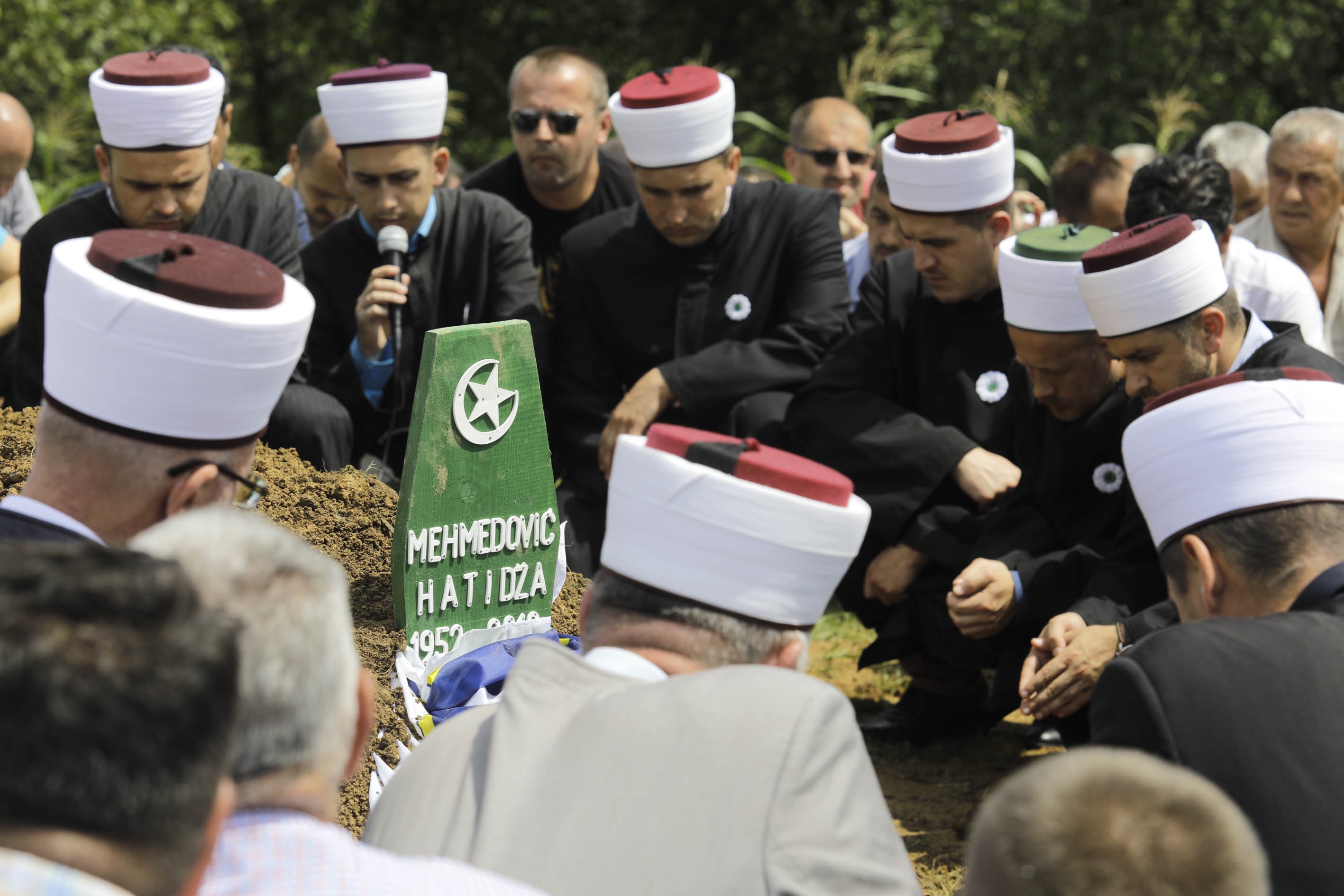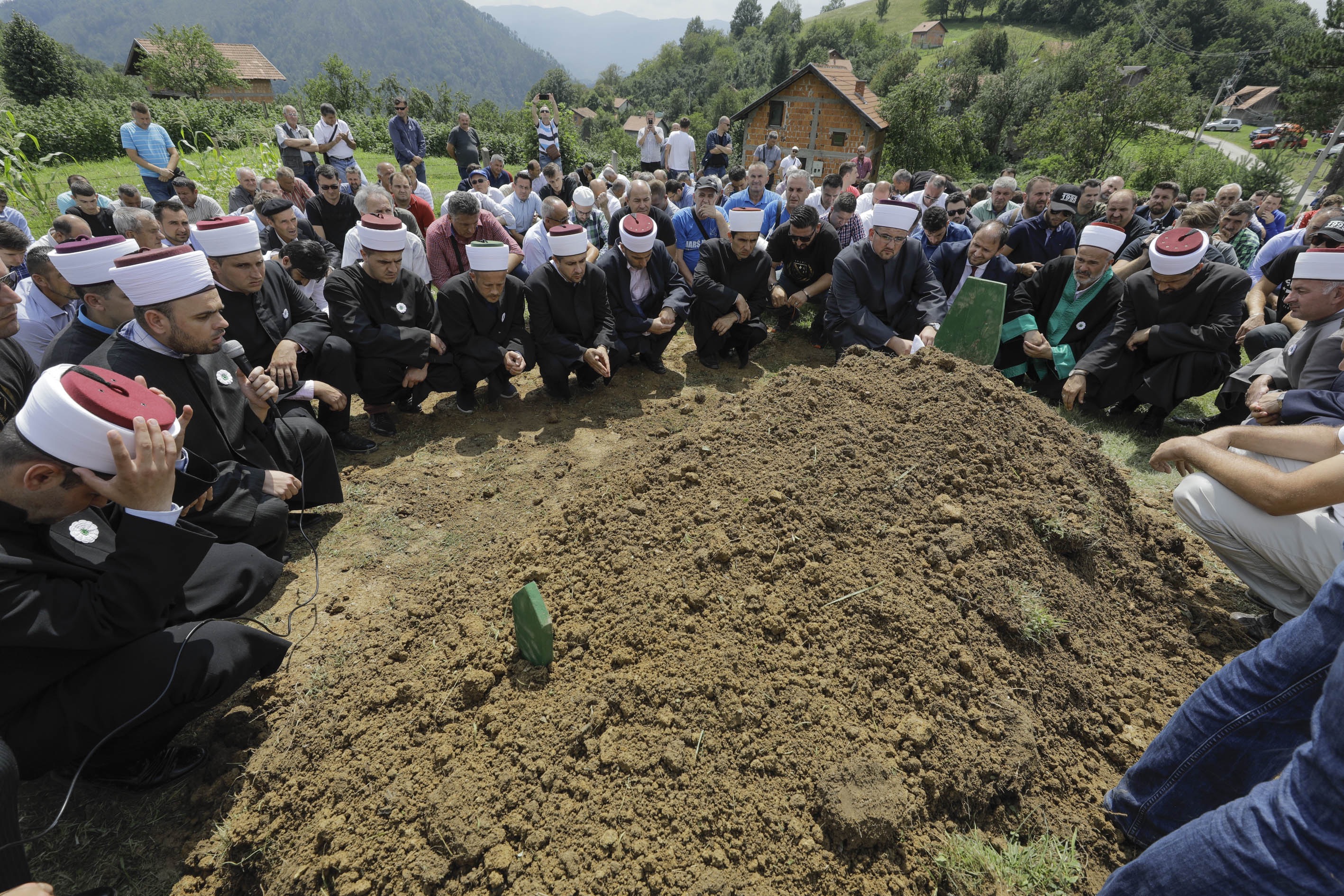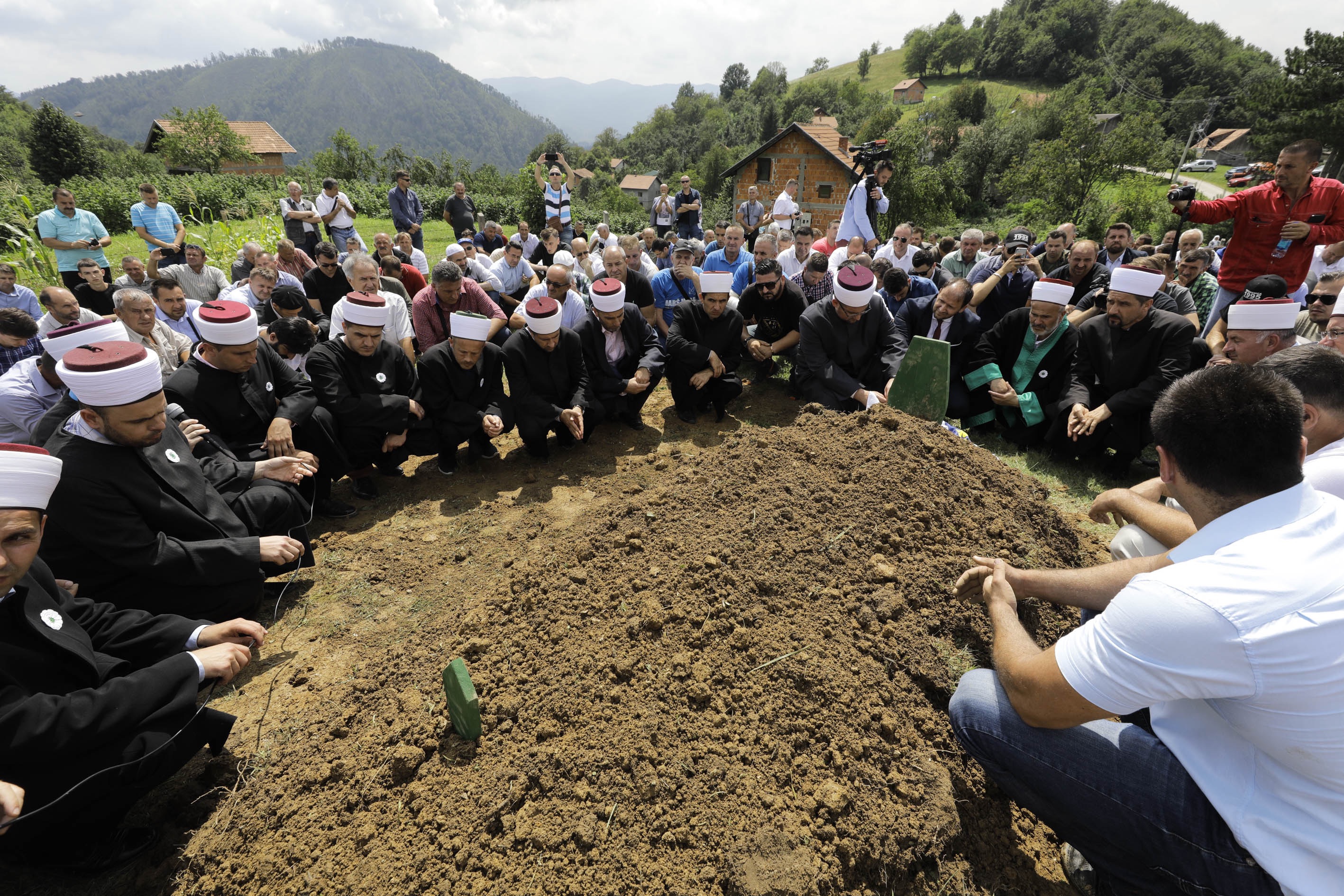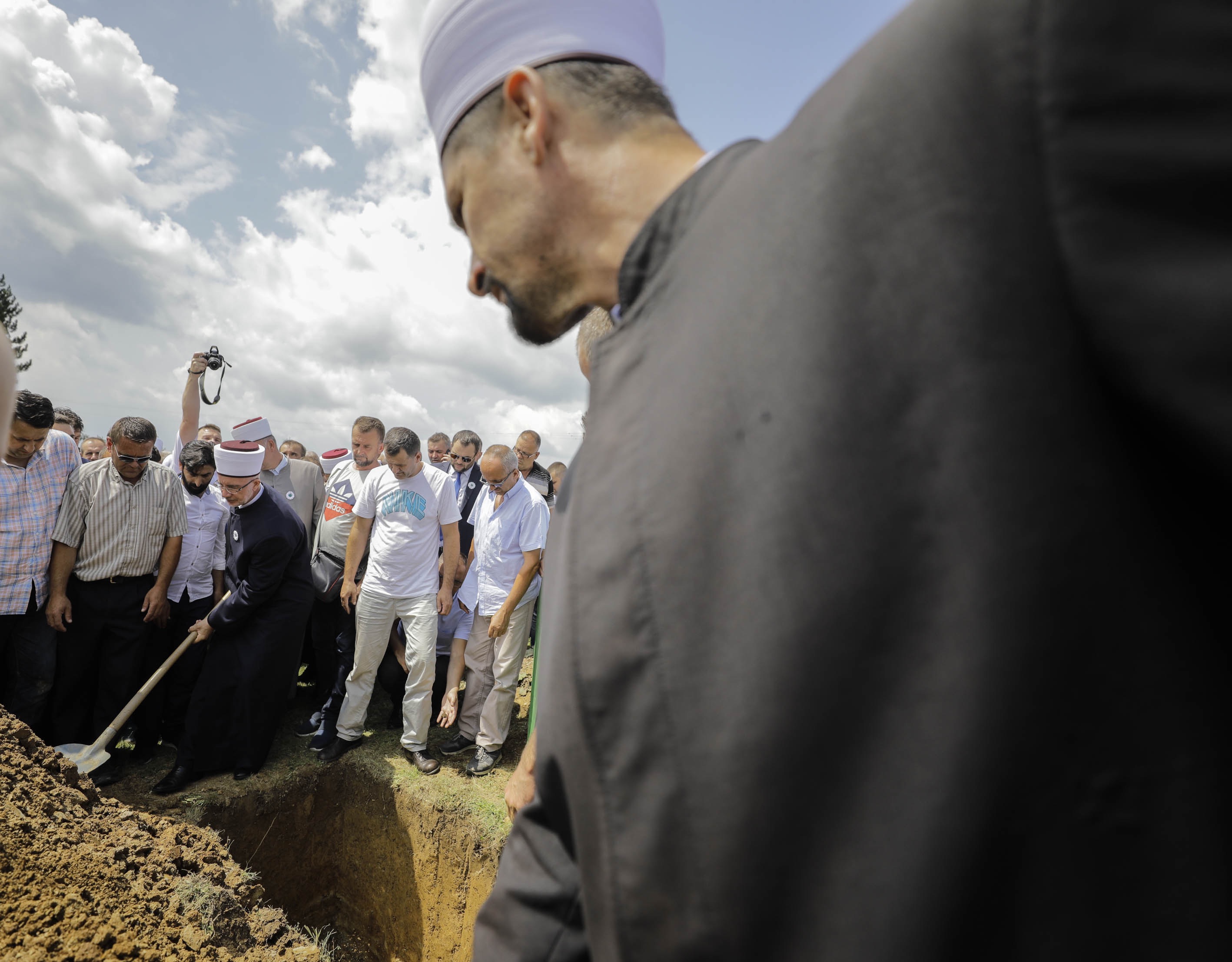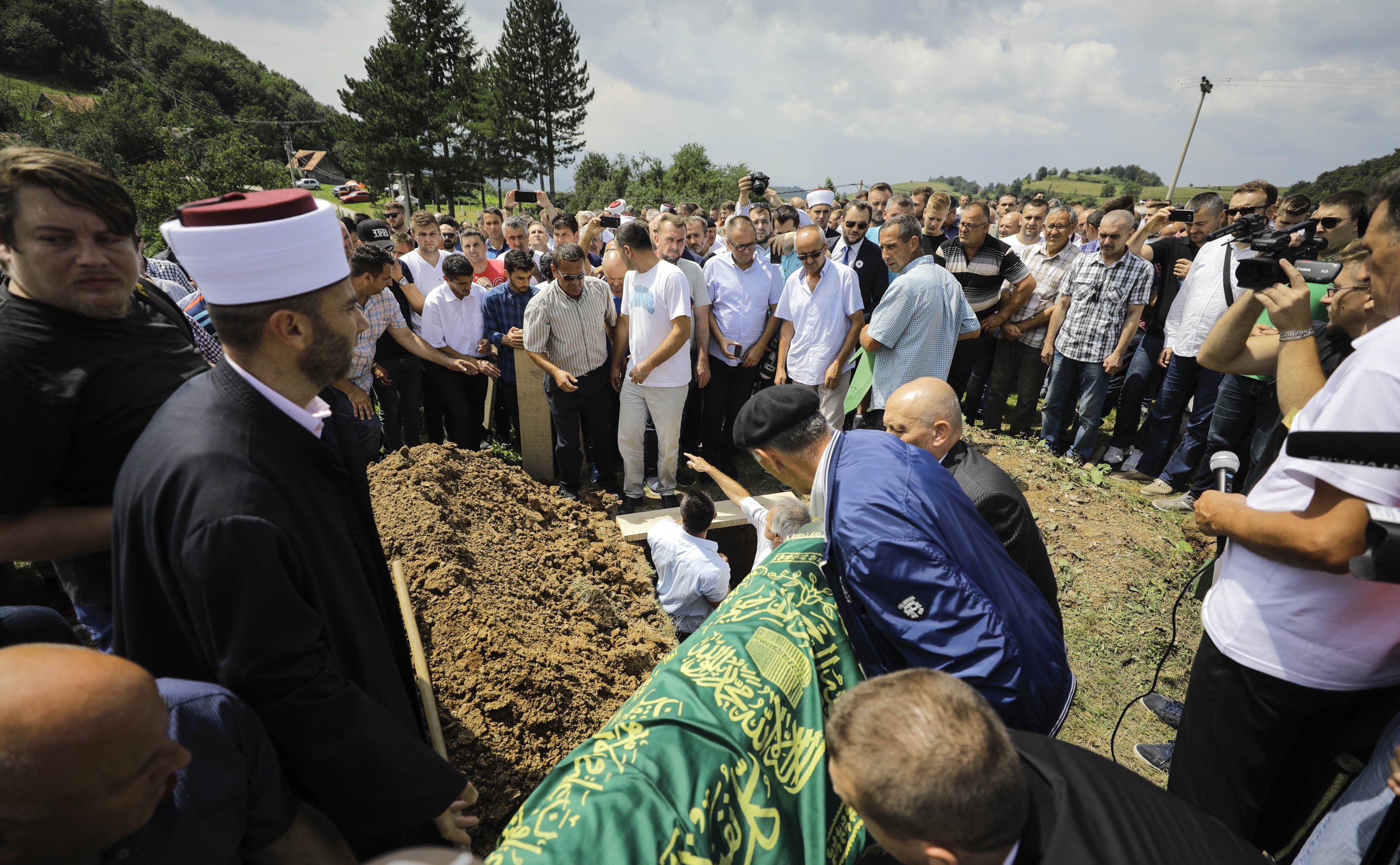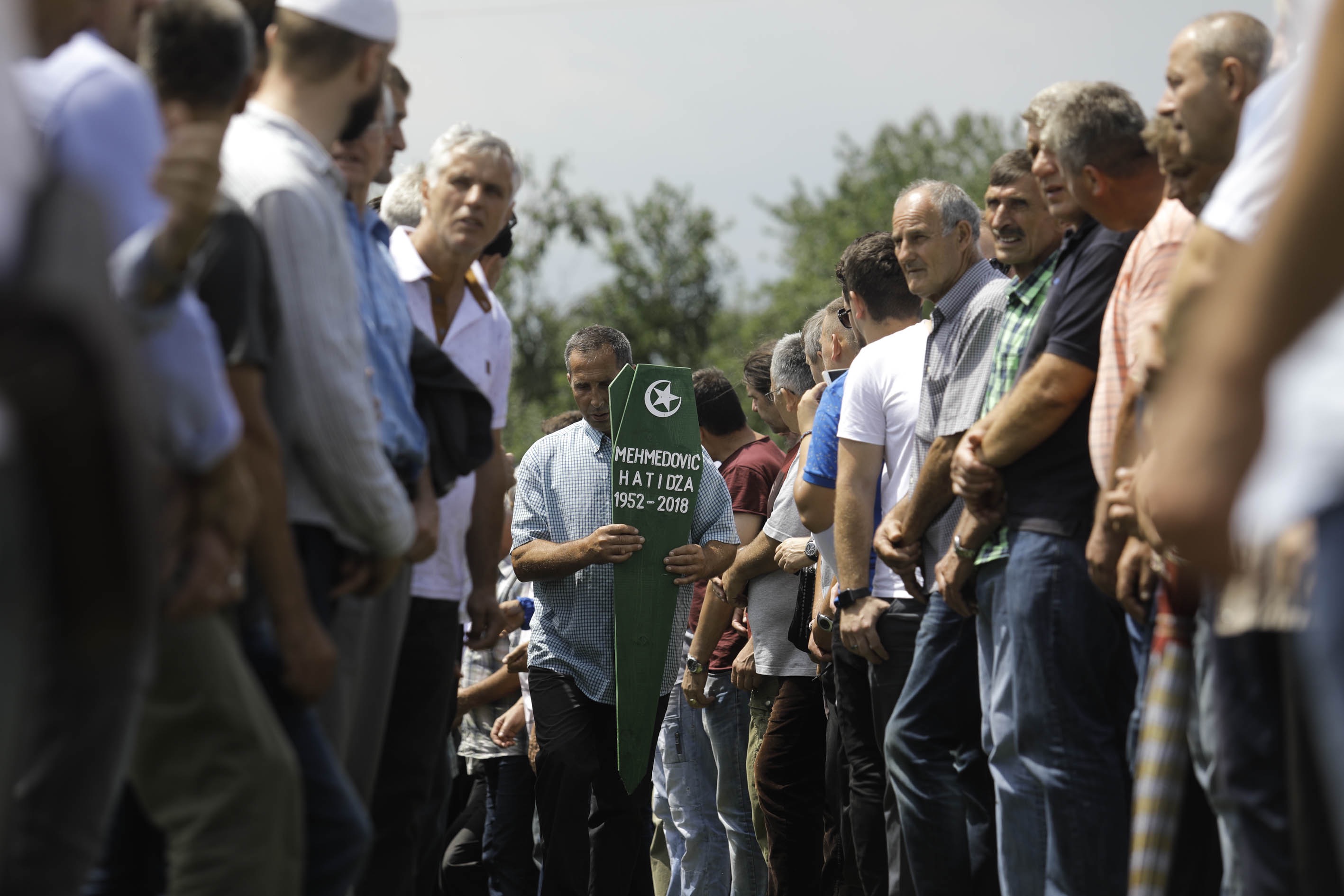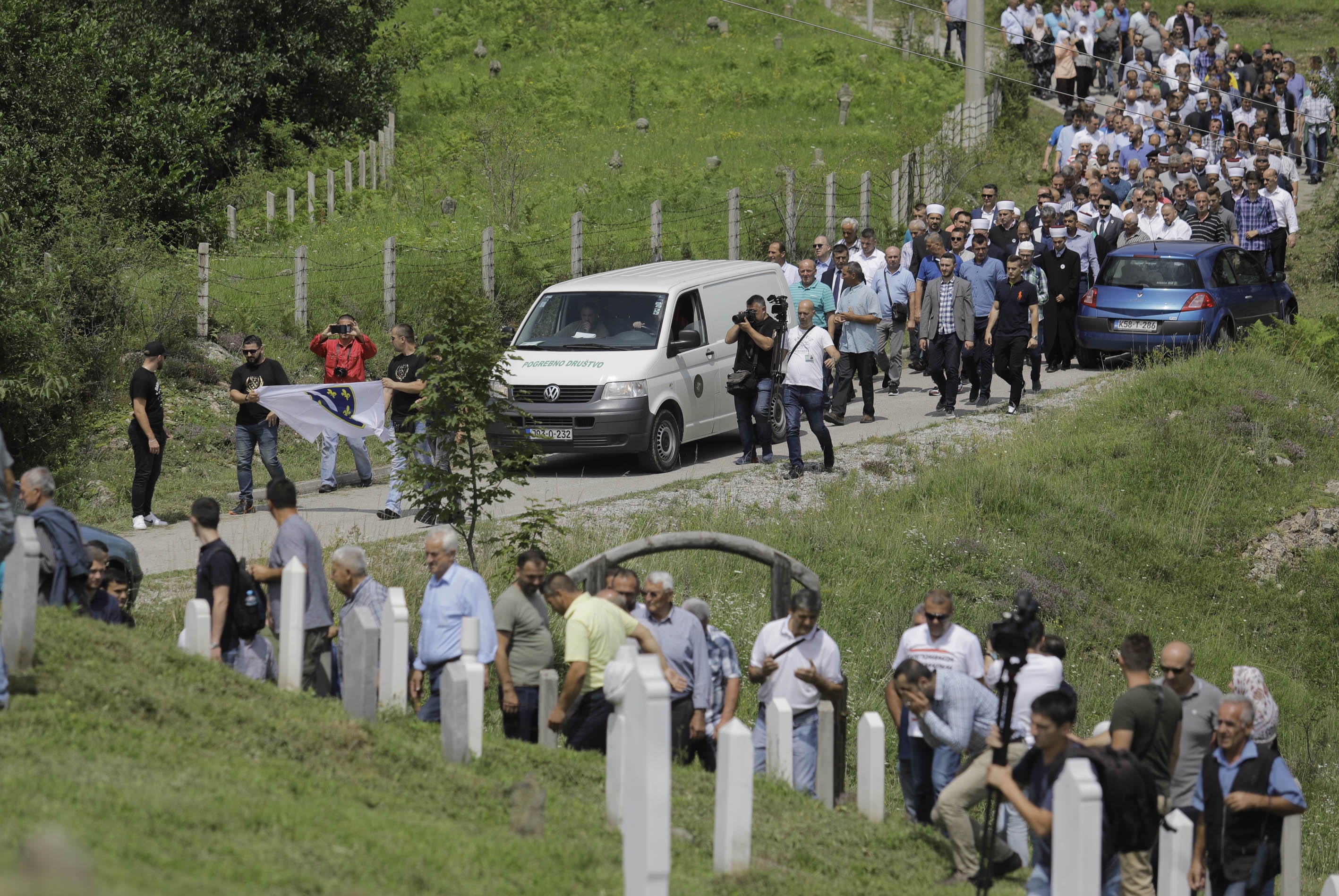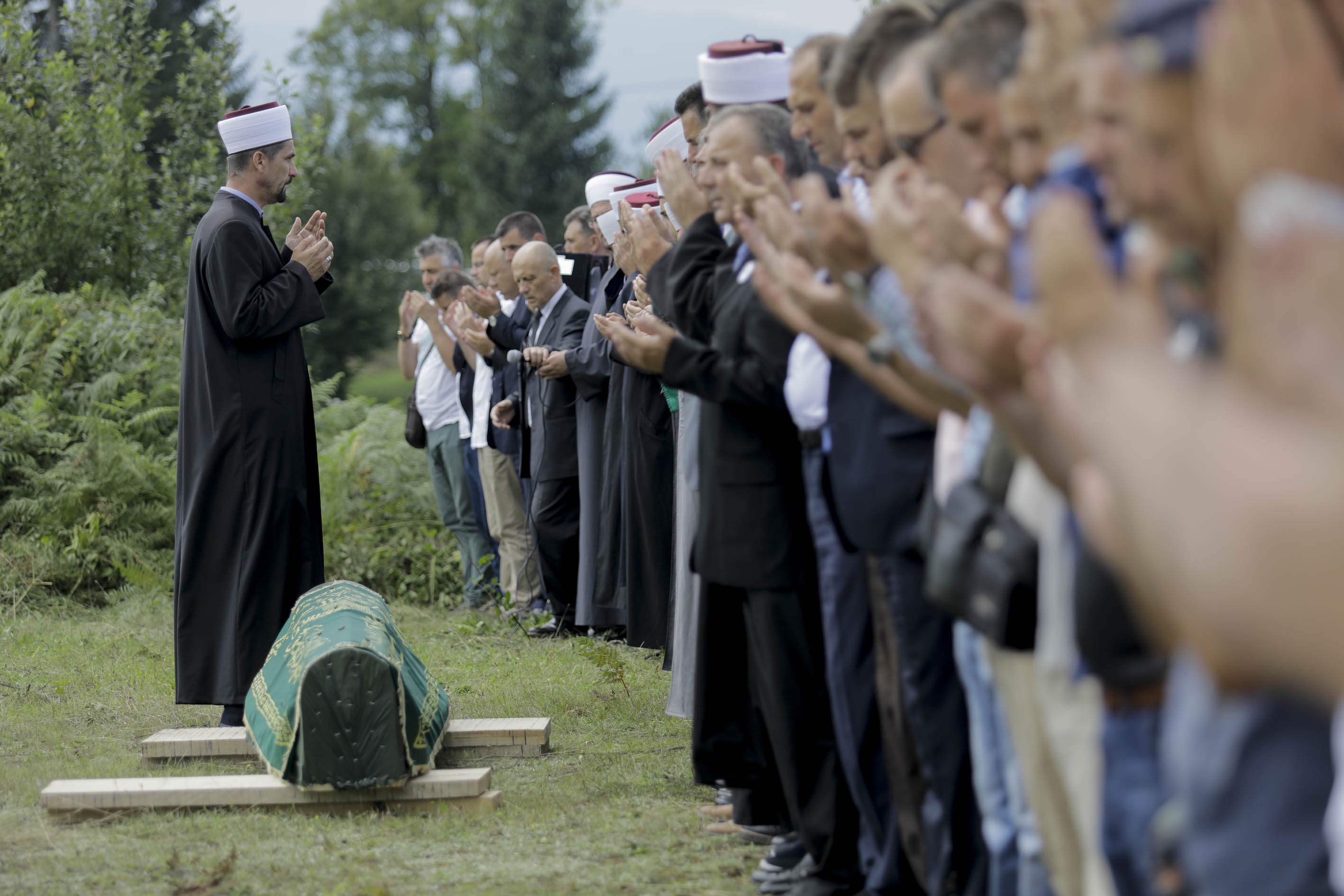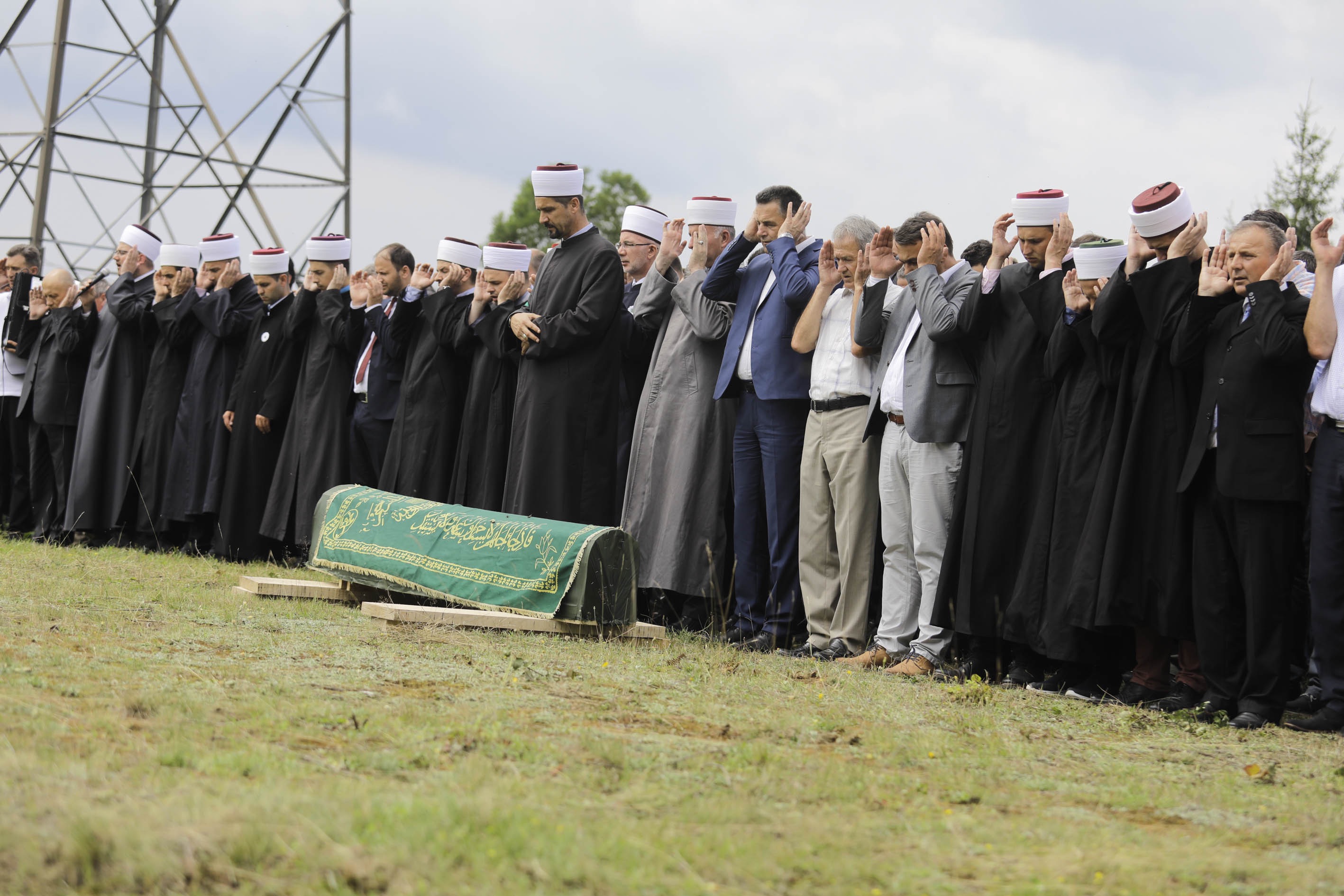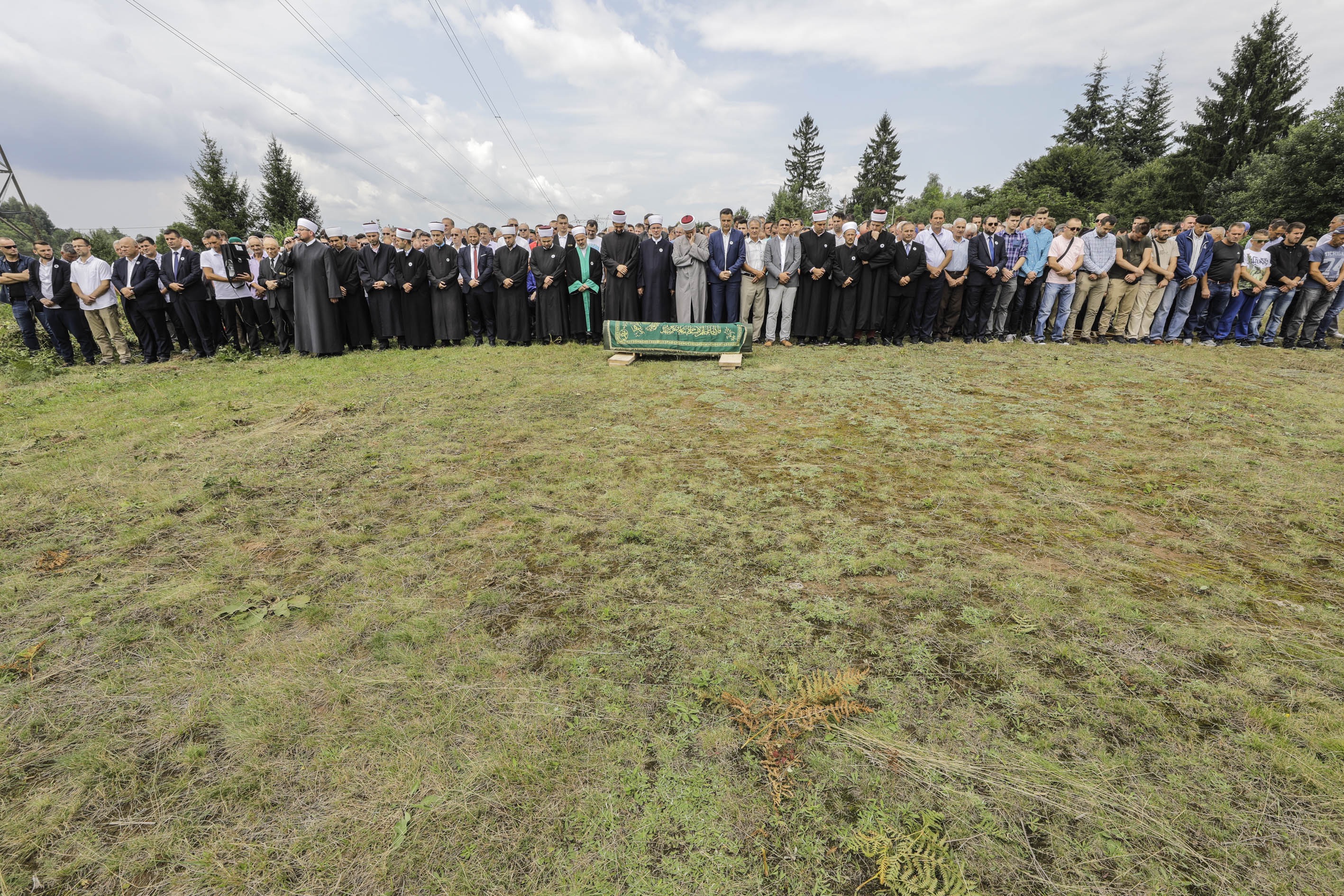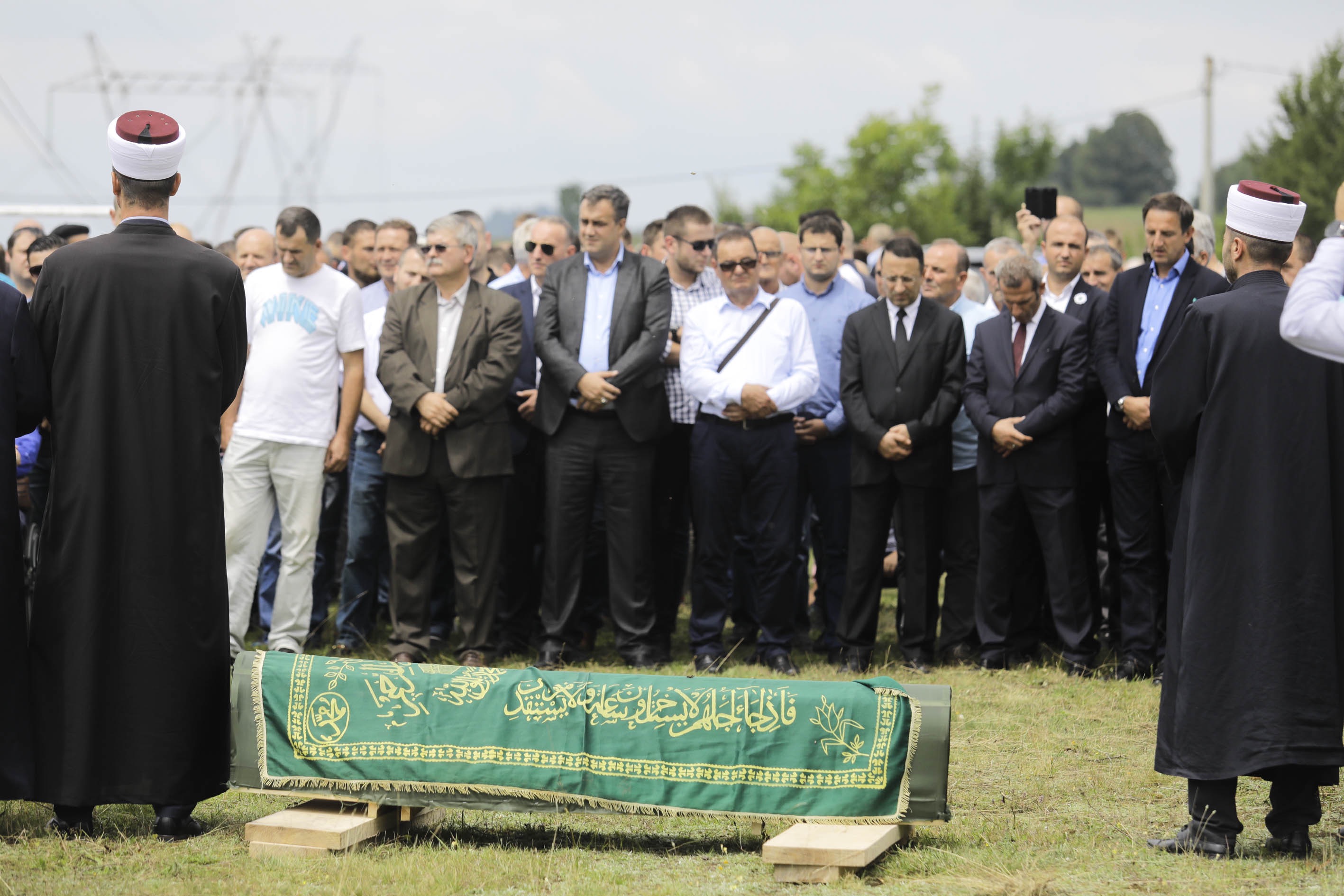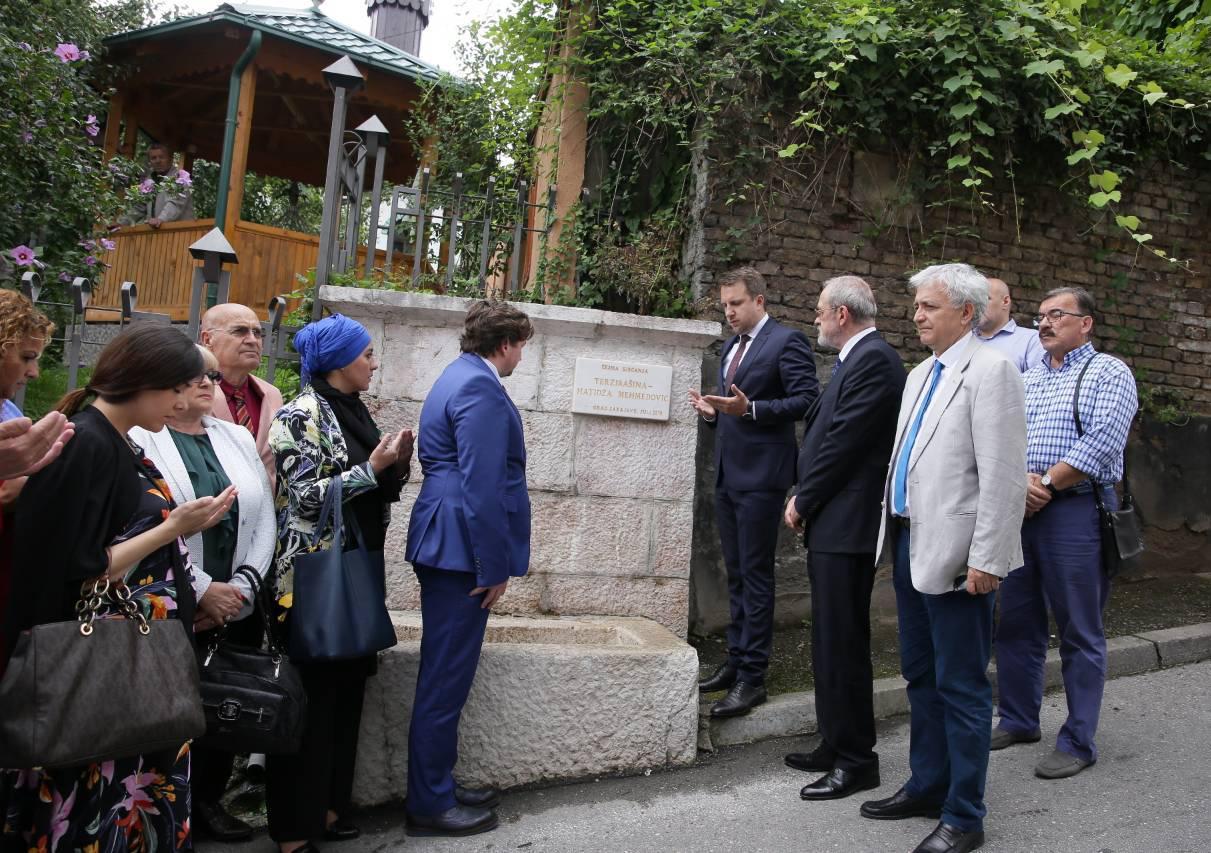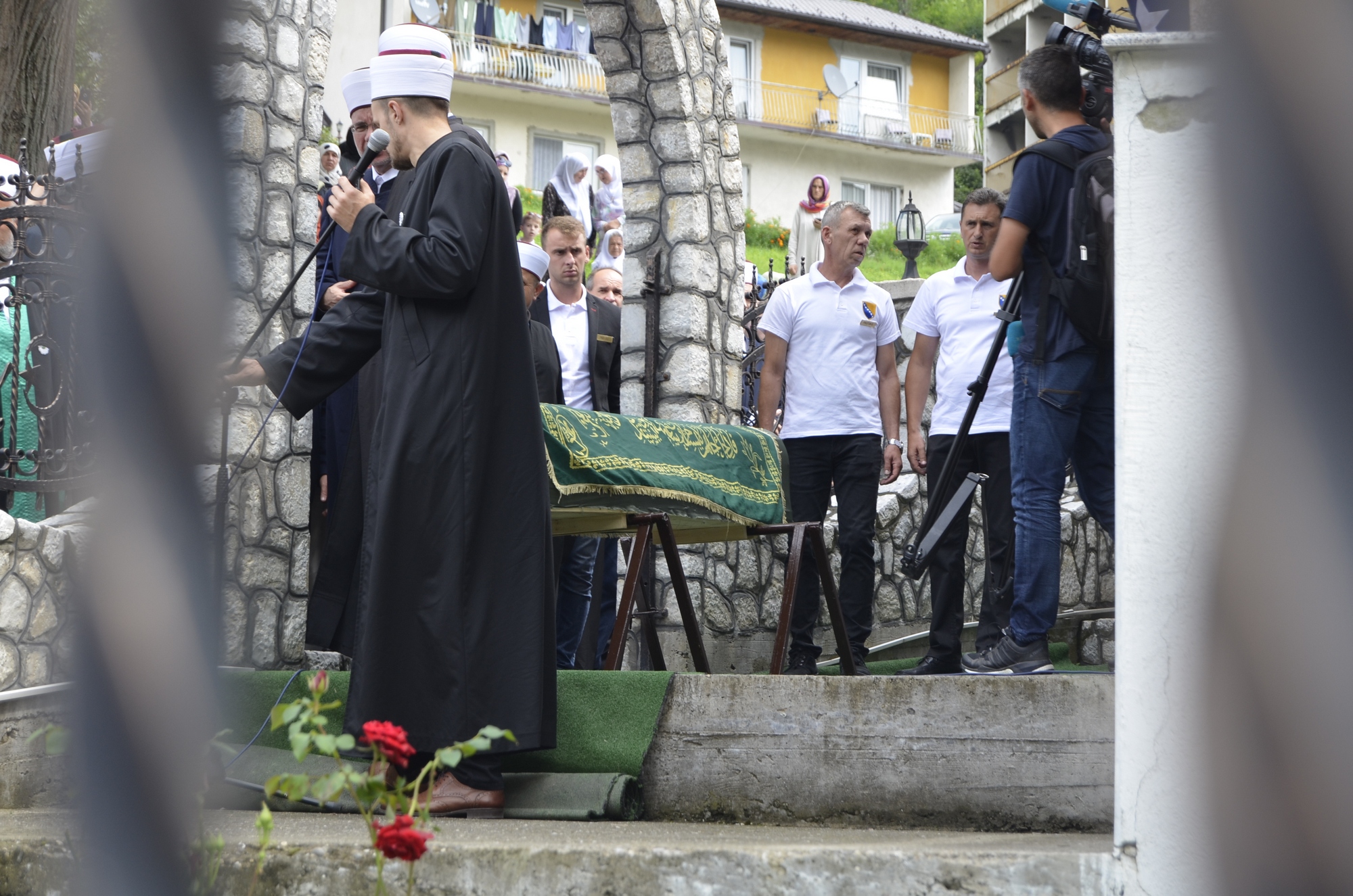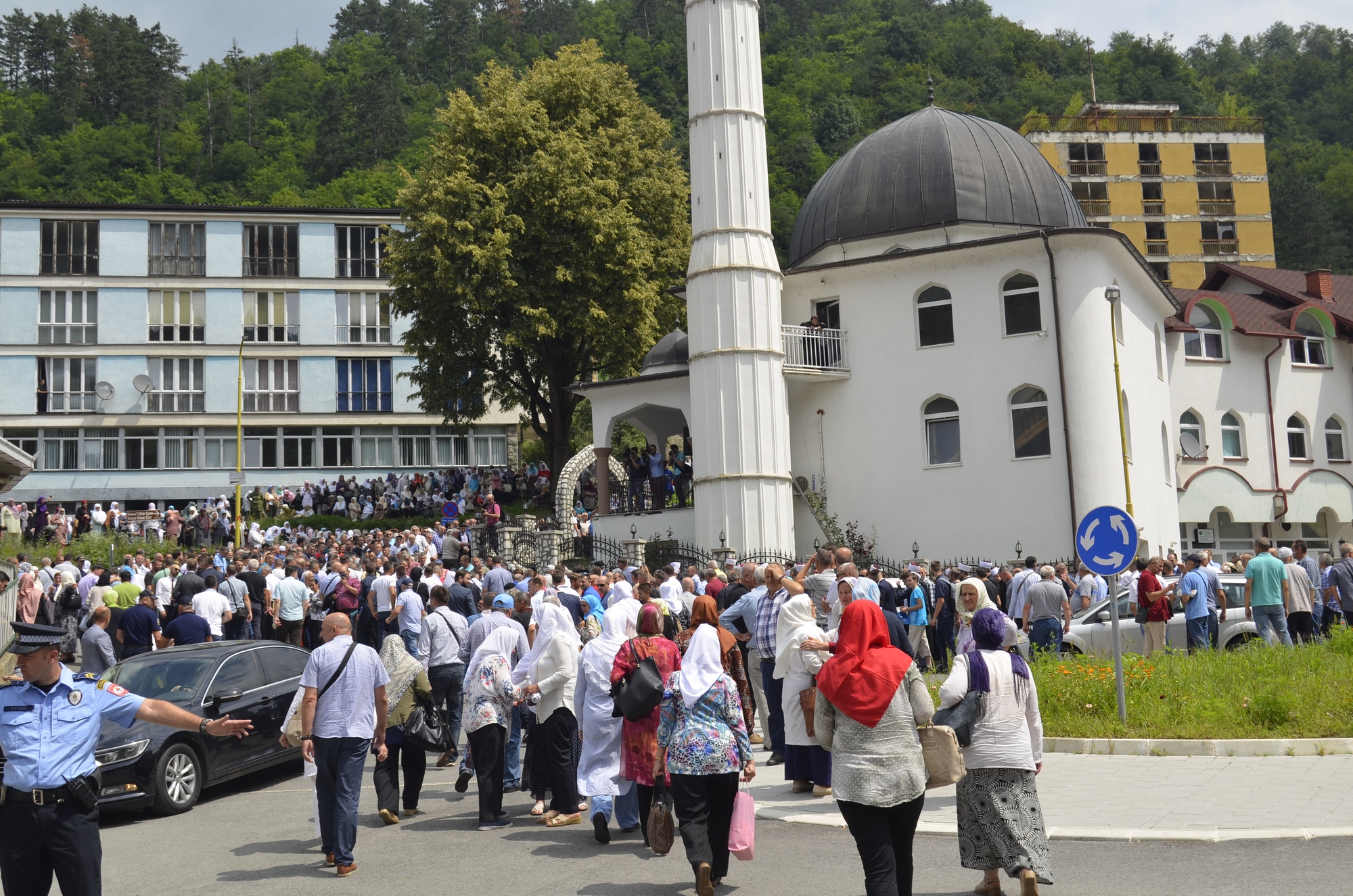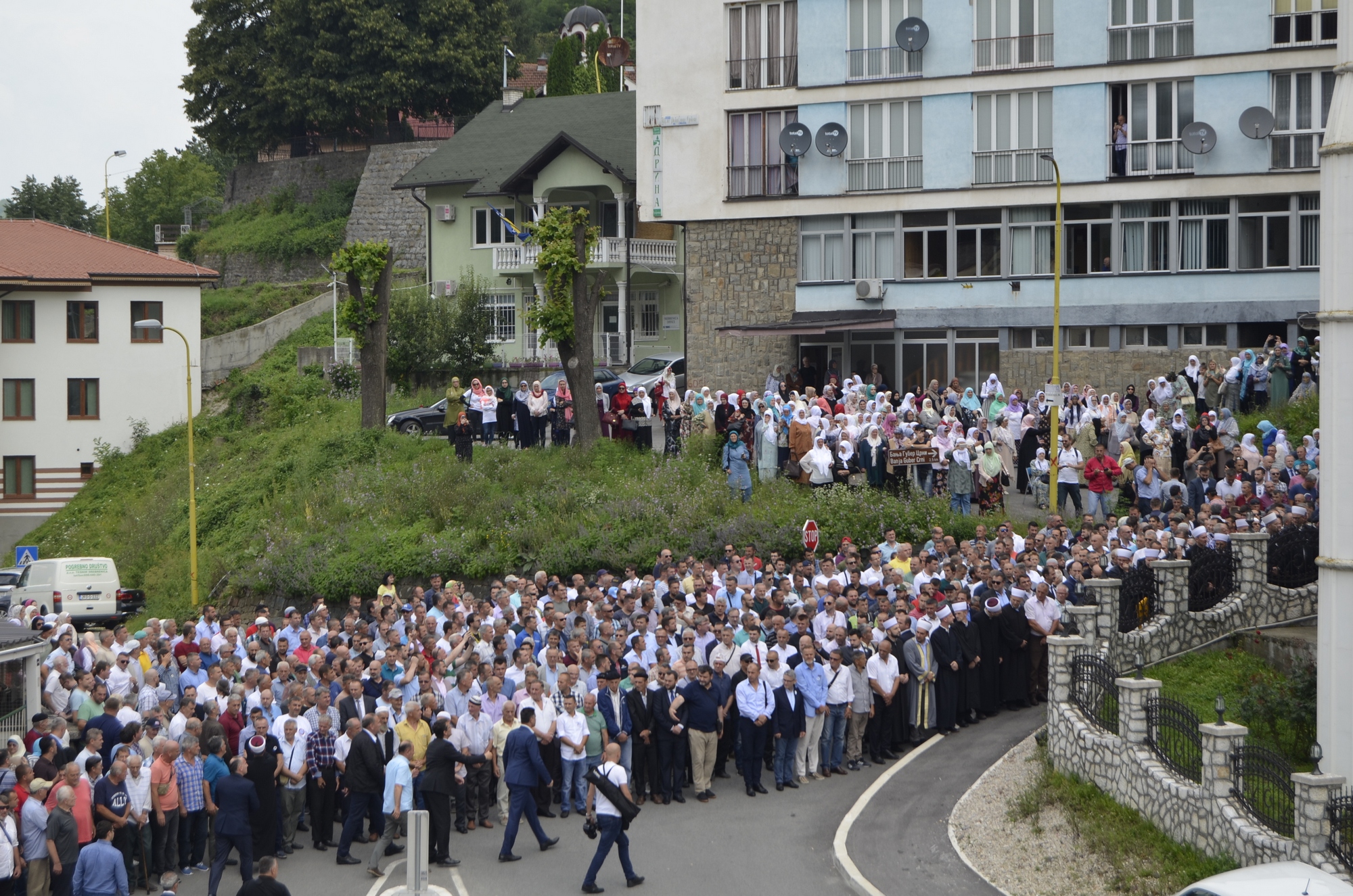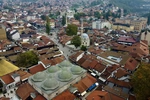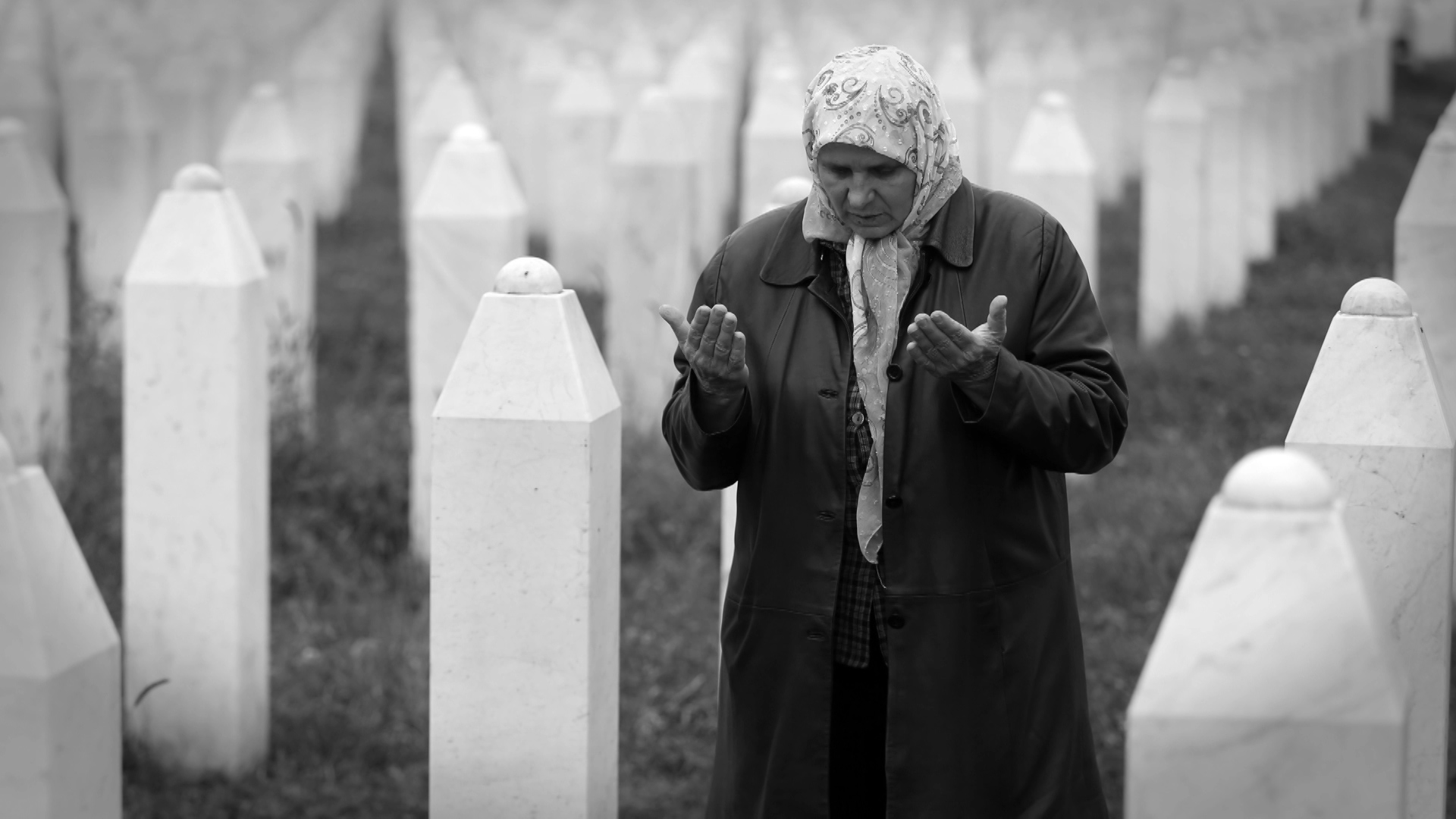
Friends, supporters and officials gathered in Srebrenica on Wednesday to attend the funeral of Hatidza Mehmedovic who headed an association of relatives of the Srebrenica genocide victims and who herself lost her husband and two sons in the 1995 massacre.
More than 8,000 Muslim men and boys were executed after Bosnian Serb troops overran the eastern enclave of Srebrenica in July 1995. The massacre is considered Europe’s worst slaughter since World War II and has been declared an act of genocide by two international courts.
Mehmedovic’s 'Mothers of Srebrenica' association fought for the truth about the carnage to be maintained, for the victims to be found and the perpetrators to be punished.
Mehmedovic lost her two sons, Almir, 18 and Azmir 21, her husband Abdulah 44, two brothers and other family members in the massacre but she nevertheless returned to Srebrenica in 2003 to live in the family house alone.
The 65-year-old died on Sunday in a hospital in Sarajevo after suffering from an illness for a long time.
The mourners attended a commemoration for Mehmedovic organised in the hall of the Srebrenica Culture Centre.
Speakers described Mehmedovic as a "mother of all" when they spoke about her achievements.
"Late Hatidza had a heart in which no evil could find its home. She was the mother of all children, regardless of their national identity, race or heritage," the head of the Srebrenica Assembly, Alija Tabakovic, said with tears in his eyes.
"For the first time in Bosniak history, after all the suffering, our mothers raised their voices in the fight for truth and justice. Hatidza was a mother to all of us," genocide survivor Emir Bektic said.
Representatives of other associations of victims also paid tribute to their colleague.
"We pay our respects to the mother who was deprived by her enemies of being a mother," said the Head of the 'Women of Srebrenica' association, Hajra Catic. "(She was deprived) Of sending her children off to university, of expecting grandchildren. A mother who fought for justice until the last day," she said.
"We promise we will continue to search for every bone of our children. We will fight for every perpetrator to be punished," she added.
"Hatidza fought for justice for 23 years, but unfortunately, she never saw it. Bosniak mothers have proven to the entire world what kind of injustice was done to them in 1995," the head of the 'Movement of Mothers of Srebrenica and Zepa Enclaves', Munira Subasic, said.
A local, Abdulsamet Djodic, read out a letter the former Bosnian Army commander in Srebrenica, Naser Oric, wrote for the funeral.
"Your sorrow is our obligation and our fight will not stop with your departure. For us, July will never end," he wrote, referring to the July 11, 1995 massacre.
"There is more of the state of Bosnia and Herzegovina in Hatidza’s head scarf than on the desks of some of the lawmakers," renown Bosnian actor Emir Hadzihafizbegovic said, adding that even Angelina Jolie paid her respect to Mehmedovic.
"Hatidza Mehmedovic lived an honest life. She never allowed anyone to frighten her or to corrupt her sense of truth and fairness. We too may never see justice in our lifetimes, but we cannot go wrong if we follow her example," Jolie wrote for the CNN the day after Mehmedovic died.
The City Assembly of Sarajevo has on Wednesday also adopted a proposal to name a public fountain near the city’s Terzibasa Mosque after Mehmedovic.
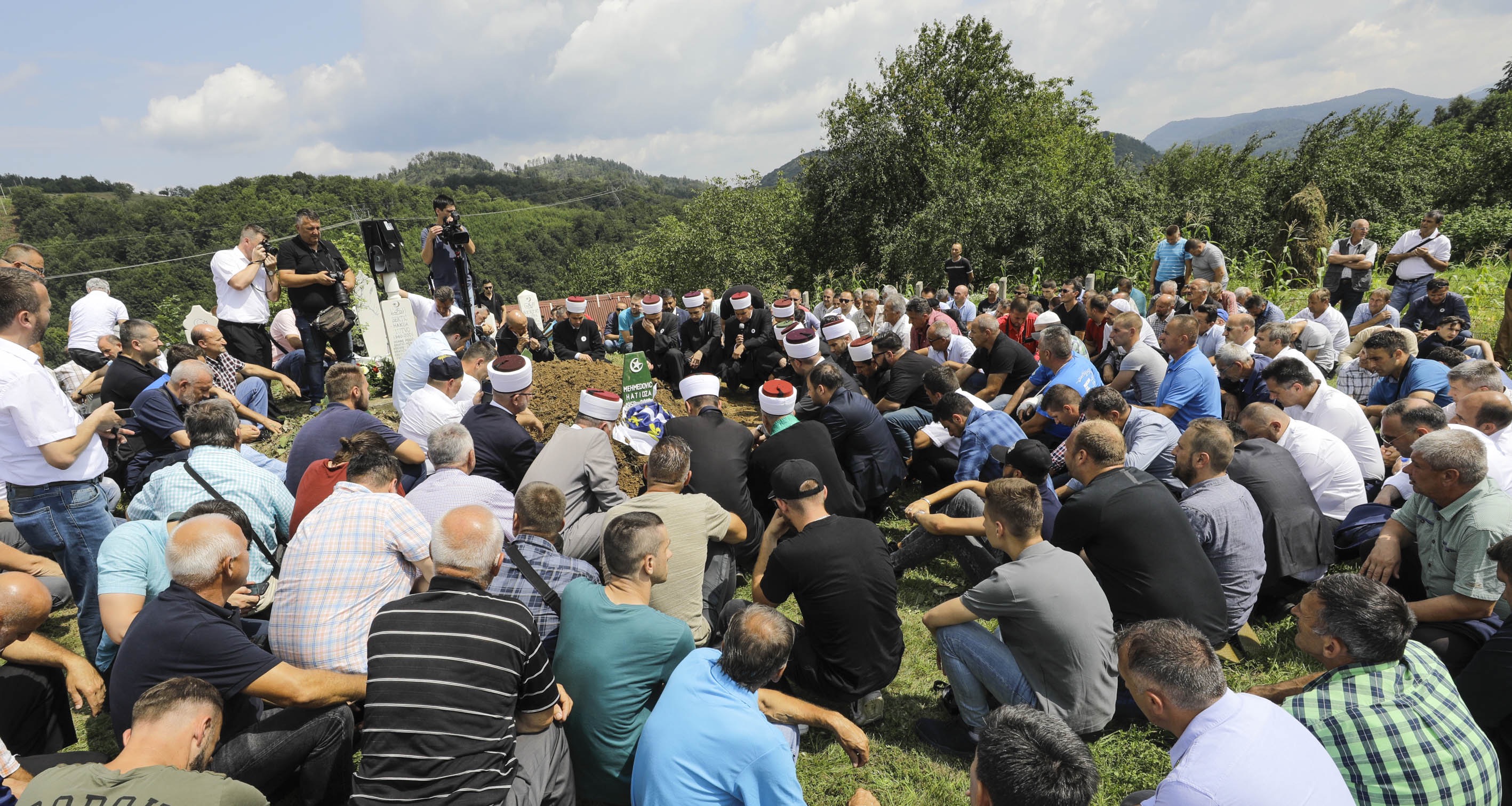
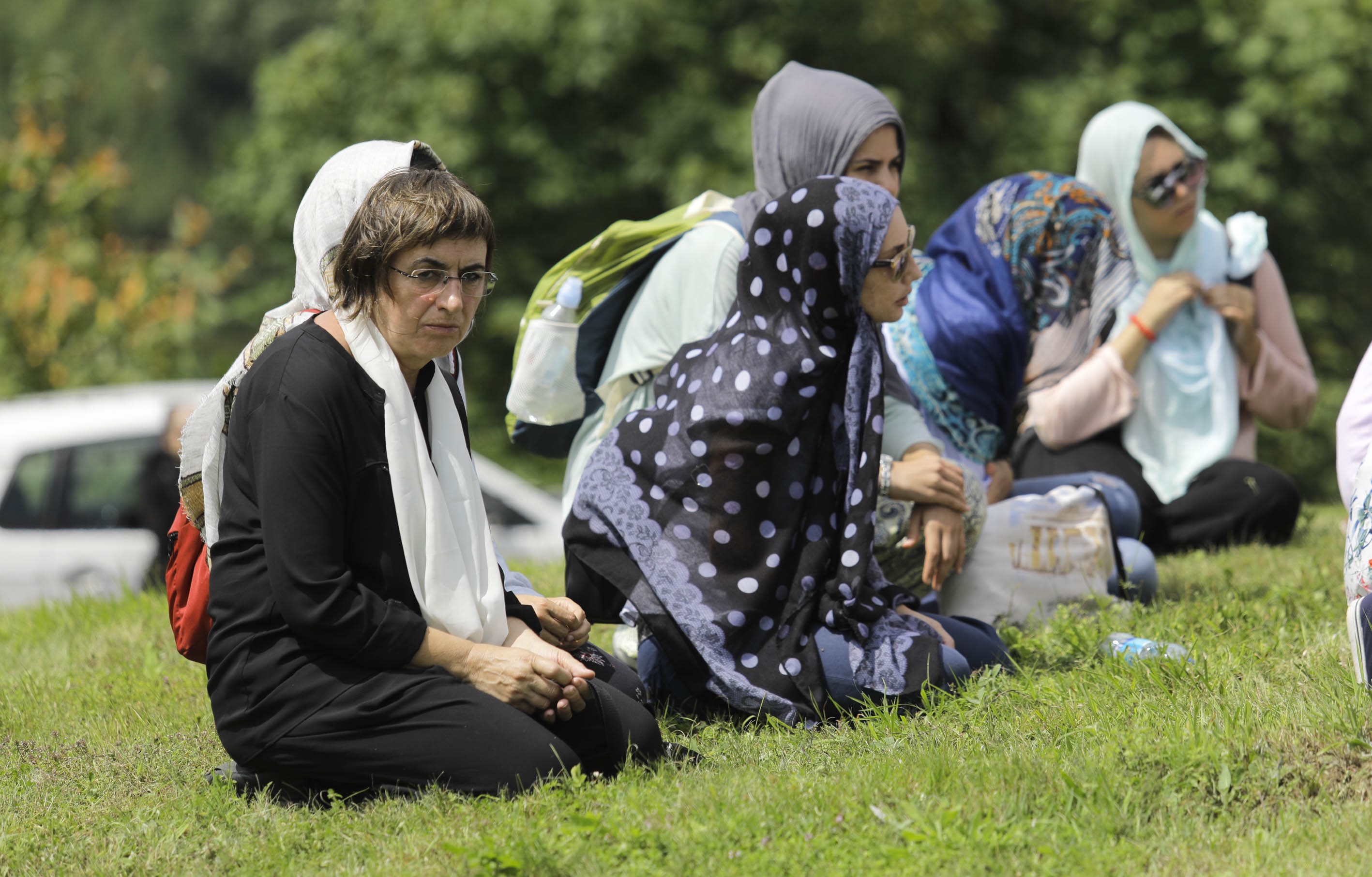
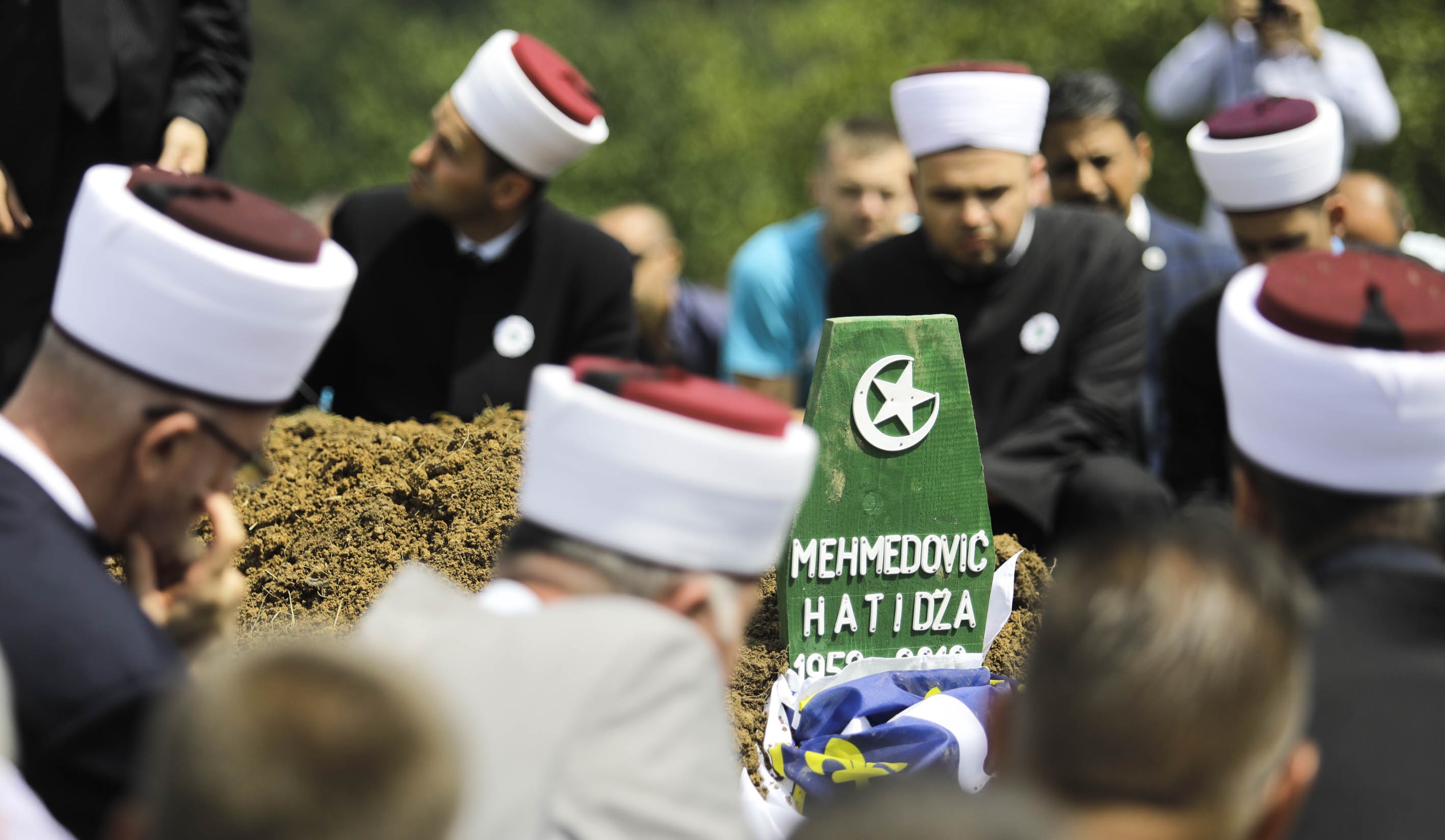
The commemoration was followed by Mehmedovic's funeral.
"Even when we made mistakes, Hatidza stood behind us. We were her children. She was happy about the children in Srebrenica. She lived for our children after they killed her own," the Srebrenica imam, effendi Damir Peštalić, said.
"We promise her that we will fight for Srebrenica, that children will be born here. We will respect the heritage of our mothers, we must speak about Srebrenica, the genocide, but also about life in Srebrenica," he said before the Islamic funeral prayer began, which was lead by effendi Vahid Fazlovic, from Tuzla.
Many Srebrenica women who survived the massacre but lost her sons, brothers, fathers and husbands in July 1995 later turned into activists. They became fierce fighters for the truth about Srebrenica, for justice to prevail, and for their loved ones to be found, although the perpetrators had dumped the bodies of the victims into mass graves which they relocated a few months later to hide the crime.
During these relocations, conducted with bulldozers, the bodies were torn apart and different pieces ended up in different mass graves, often kilometers away from each other.
Nevertheless, most were found, their remain put together and identified by forensic experts, thanks to a mass DNA identification process that was developed and applied in Bosnia for the first time.
Thanks to this process, Mehmedovic found and buried her family, even though only two bones were found from one of her sons.
Mehmedovic was laid to rest in her native village of Bektici, near Srebrenica
Kakvo je tvoje mišljenje o ovome?
Učestvuj u diskusiji ili pročitaj komentare





 Srbija
Srbija
 Hrvatska
Hrvatska
 Slovenija
Slovenija




